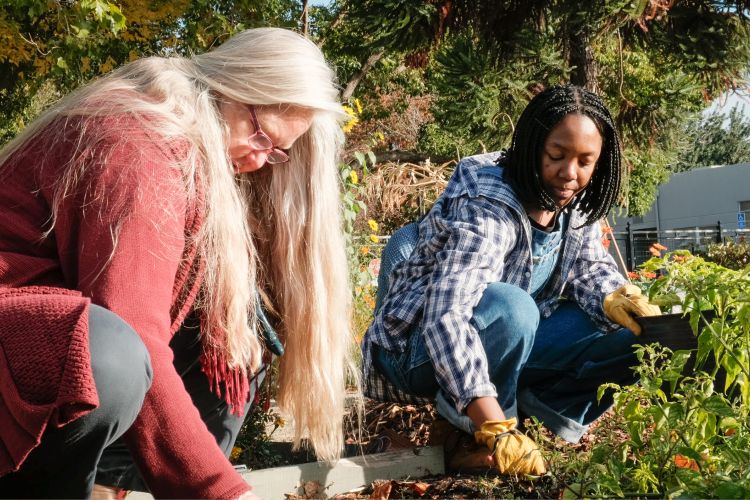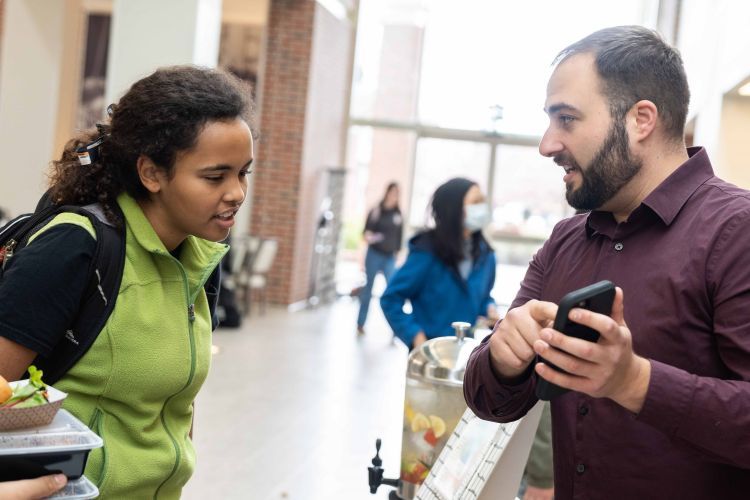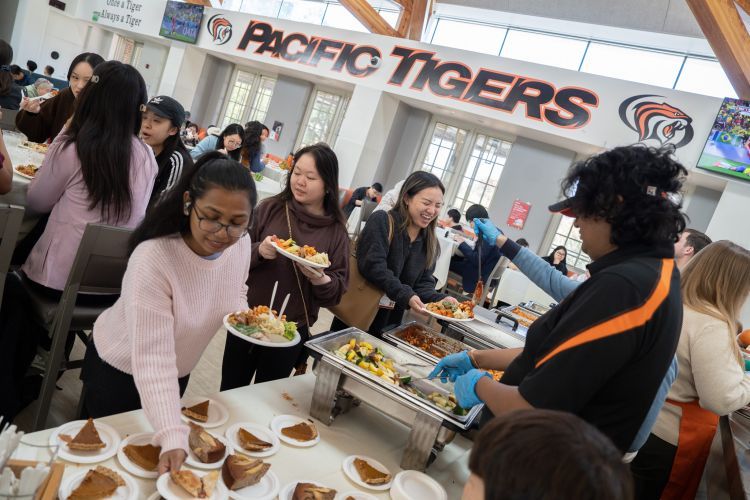Breadcrumb
Pacific ranked in Top 10 globally for food/dining sustainability efforts

Pacific is ranked among the top 10 in the world for its sustainable food and dining practices.
University of the Pacific ranks in the Top 10 in the world for sustainable food and dining practices on college campuses, according to a new study.
The 2021 Sustainable Campus Index, published annually by the Association for the Advancement of Sustainability in Higher Education, is based on hundreds of public and private universities in the United States and internationally self-reporting to the Sustainability Tracking, Assessment & Rating System. Pacific is the only university in California to make the Top 10.
“Pacific is becoming a national leader in sustainability,” said President Christopher Callahan. “Our food and dining program is just one of the many innovative ways we are working to create a campus environment for our students and community that incorporates sustainable practices into their everyday lives while preserving and protecting vital resources.”
Pacific’s long-time food service provider Bon Appetit has a strong farm-to-fork initiative. Sia Mohsenzadegan, food service director for Bon Appetit at Pacific, said 90% of produce served at the university comes from farms within 150 miles of the Stockton Campus.
“That’s pretty rare,” said Jessica Bilecki, Pacific’s sustainability director, who said Bon Appetit and the university take advantage of its location. California’s Central Valley is one of the largest agricultural regions in the world, producing much of the country’s fruits, vegetables and nuts.
Pacific even grows its own produce on campus at the Ted and Chris Robb Garden.
In addition to produce, seafood is sustainably certified.
All excess food is donated to St. Mary’s Dining Room, a Stockton nonprofit that provides meals to people in need.
To reduce waste, Bon Appetit made a major change four years ago.
“Every knife, fork (and) to-go container we use is compostable,” Mohsenzadegan said.
The “Tiger To Go” program takes it a step further with reusable food containers available for purchase.
“Students can get their items in the containers. Every time they use them, they save money, they save the landfill and they can bring them back and exchange them for clean ones,” Bilecki said.
Pacific was also recently included in The Princeton Review Guide to Green Colleges. The university was selected based on The Princeton Review’s 2020–21 survey of administrators at 835 schools focusing on their sustainability practices and programs.
Sustainability is important for students choosing a college.
According to The Princeton Review, 78% of students surveyed in the company’s 2021 College Hopes and Worries Survey said a school’s commitment to the environment affects whether they apply or attend. That’s up 12% from the prior year.
“It’s extremely important,” said first-year student Kenneth Caslib ’25. “I believe that we are really strong with sustainability” at Pacific.
One of the university’s major initiatives focusing on renewable energy is nearing completion.
A solar panel project being installed in partnership with Tesla will provide more than 30% of overall energy needs on campus once complete, second only to one other university in the country. Sixteen electric vehicle charging ports will be available as well.
To conserve water on its Stockton Campus, Pacific uses 100% non-potable water, not of drinking quality, for irrigation. Most of the water comes from the Calaveras River and is closely monitored with a computerized irrigation control system to reduce usage.
An online surplus program also just launched to improve reuse efforts. The university’s online portal allows employees to post furniture and other office items they no longer need that other employees may claim.
The university is always looking for new suggestions.
Students, faculty, and staff with ideas for improving sustainability efforts around any of Pacific’s three campuses can apply for the university’s Sustainability Project Investment Fund. Pacific established the fund in 2012 to support projects that reduce energy usage and waste, have measurable environmental benefits and support sustainability-related education and outreach.
“We work with students to empower them to make some measurable changes,” Bilecki said.
Previously funded projects include zero energy treadmills in Baun Fitness Center, water bottle refill stations and LED lighting upgrades.






